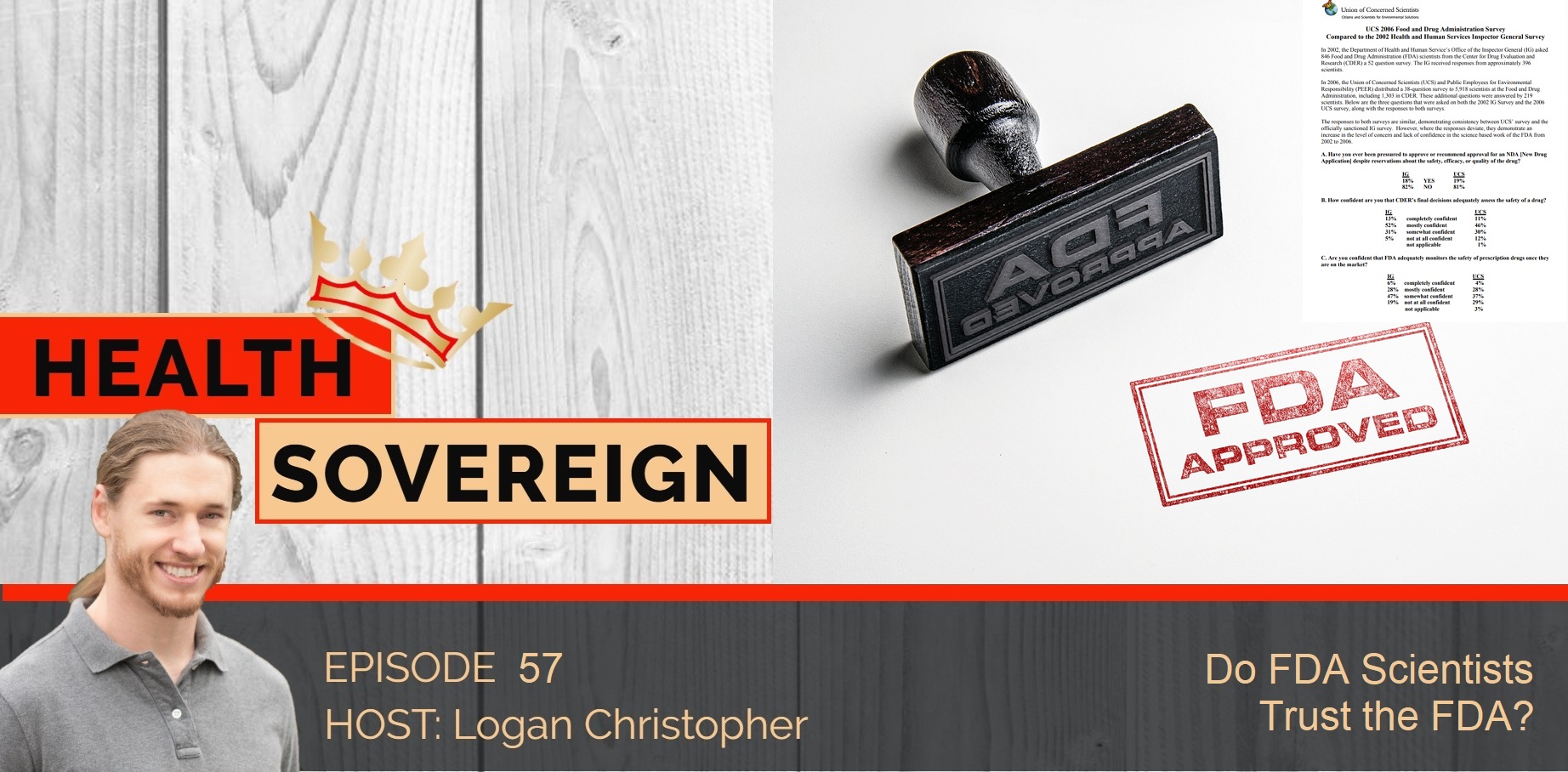Renee Dufault finds traces of mercury in corn syrup. The FDA tells her not to investigate.
Rosemary Johann-Liang wants to place a strong warning label on the drug Avandia. Her superiors transfer away her responsibilities on that drug.
David Graham says of the deadly Vioxx, “I would argue that the FDA, as currently configured, is incapable of protecting America against another Vioxx. We are virtually defenseless…Vioxx is really a symptom of something far more dangerous to the safety of the American people. Simply put, FDA and its Center for Drug Evaluation and Research are broken.”
And that’s just the start.
This episode also features the FDA spying, a criminal investigation of the head of the FDA, and even more whistleblowers.
What Senator Grassley said kind of says it all. “Secret monitoring programs, spying on Congress and retaliating against whistleblowers — this is a sad commentary on the state of affairs at the FDA.”
Did you enjoy the podcast? Let me know by leaving a short review and be sure to hit that subscribe button so you don’t miss any future episodes!
Click the link below to see written articles and references.
Medical Monopoly Musings #57
Do FDA Scientists Trust the FDA?
Dr. Sheldon Krimsky, a science policy expert at Tufts University said, “[C]onflicts are common on F.D.A. advisory panels. The agency often conceals these conflicts, and studies have shown that, taken as a whole, money does influence scientific judgment.”
Conflicts are common. Money does influence science. I would say this is obvious, but still too many people think that science is beyond human greed. Let’s look at what these scientists have to say for themselves.
A 2002 internal survey of the FDA scientists themselves found:
● 66% lacked confidence in the “ability of the agency to adequately monitor the safety of prescription drugs on the market.”
● 36% were only somewhat confident or not confident at all in the FDA’s decisions regarding drug safety
● 22% were only somewhat confident or not confident at all in the FDA’s decisions regarding drug effectiveness
● 18% had been “pressured to approve or recommend approval for a [new drug application] despite reservations about the safety, efficacy, or quality of the drug.”
396 FDA scientists participated in this survey. Most fascinating of all was that it was NOT anonymous.
What were the true numbers if people weren’t frightened for their position?
And what are the numbers today?
While I haven’t seen a recent report, it is important to find that these results were replicated, more than once.
In 2006, a survey was conducted by the Union of Concerned Scientists (UCS) in which 997 FDA scientists responded.
● 61% knew of cases where "Department of Health and Human Services or FDA political appointees have inappropriately injected themselves into FDA determinations or actions." (A big hubbub is being made about political pressure here regarding Trump…as if it is a new phenomenon!)
● Only 47% thought the "FDA routinely provides complete and accurate information to the public."
● 81% agreed that the "public would be better served if the independence and authority of FDA post-market safety systems were strengthened."
"Science must be the driving force for decisions made at the FDA. These disturbing survey results make it clear that inappropriate interference is putting people in harm's way," said Dr. Francesca Grifo, Senior Scientist and Director of UCS’ Scientific Integrity Program. "FDA leadership must understand and support independent science and it is up to Congress to hold them accountable."
Congress to hold the FDA responsible? As if Big Pharma doesn’t have the largest lobbying group in the world specifically to influence Congress. (See #41 for how scary deep this goes!) If anything, we can probably trust Congress LESS than the FDA.
It’s the fox guarding the hen house.
Sadly, it’s much the same at the CDC, EPA, FTC, NIH and beyond.
If this many FDA scientists themselves do not trust the FDA, why should anyone else?
Why would we expect this situation to get any better if Big Pharma is influencing all of those who could fix it (politicians) and bring it to light (journalists)?
Indeed, the success of such influence allows Big Pharma more power to increasingly grab even more power for themselves.
In the next issue, we look at specific FDA whistleblowers. There are quite a few of them!
References:
Rost, P. (2006). The whistleblower: Confessions of a healthcare hitman. Brooklyn, NY: Soft Skull Press.
https://web.archive.org/web/20060831111605/http:/www.ucsusa.org/news/press_release/fda-scientists-pressured.html
https://web.archive.org/web/20060913200946/http://www.ucsusa.org/assets/documents/scientific_integrity/IG-Comparison-Fact-Sheet.pdf
